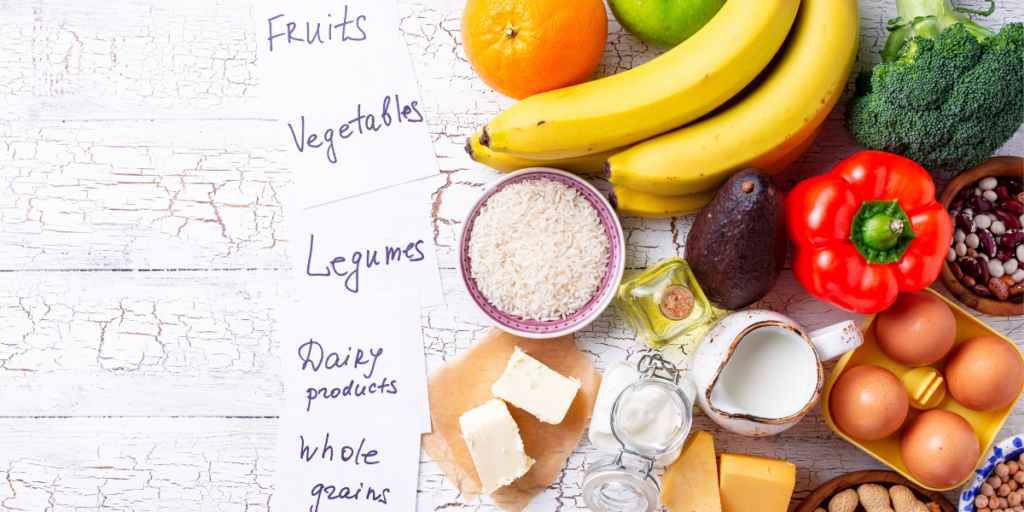Recovering from addiction, may it be from alcohol or drug addiction, can be a difficult process that could take months. More often than not, recovering patients succumb to indulging themselves with junk food to deal with the stress of recovering. After all, they are already depriving themselves of their destructive vices, so why make the recovery process any harder by avoiding junk food? However, studies show that turning to unhealthy food during addiction recovery can only makes matters worse. Also, by eating junk food, patients do not maximize the benefits of healthy food in helping them get over their vice and jump starting their body's restoration.
Unfortunately, these sort of diets for addiction is not emphasized enough in addiction recovery programs. The proper detox diet should be taken seriously for it can lead the way to faster and better recovery, as well as preventing addiction relapses. Here are a few tips to carry out when looking to give up drugs and alcohol and eat healthier.
You may also read: Top 5 Outstanding Books on Addiction and Recovery
What to Eat and When?

A diet for addiction recovery is composed of the following proportions:
- Proteins 25%
- Carbohydrates 45%
- Fats 30%
This diet proportion is meant to help repair a patient's damaged cells and tissues resulting from alcohol or drug addiction. It is also designed to restore a person's health which could have been compromised because of substance abuse. Often times during addiction, a person prioritizes the vice more than actual needs including healthy food. In cases of alcoholics, alcohol can fill up to 50% of their daily calorie intake, resulting to severe damage to the liver, the digestive track, and other organs.
Decreasing Caffeine Intake
People recovering from addictions must avoid caffeine as much as possible for it can irritate the digestive track during the restorative period. The following substitutions can be made to avoid caffeine consumption among recovering drug addicts or alcoholics:
- Instead of drinking regular coffee, decaffeinated coffee could give a person the same palate satisfaction, sans the caffeine.
- A patient can turn to caffeine-free herbal teas instead of caffeine-loaded black or green tea. Lavender and chamomile are good varieties of non-caffeinated teas that are also calming and relaxing.
- If a patient is keen on drinking energy drinks, fresh citrus juice or lemon water can energize the body without the caffeine.
Taking Vitamins to Supplement Your Diet for Addiction Recovery
Various vitamins can help a lot in the recovery process of a former drug or alcohol addict. This include Vitamin C, B vitamins and zinc. These vitamins increase your body's ability to recover and restore itself back to its healthy state. Though it is best to get these vitamins from foods, taking capsule or tablet supplements can aid in filling in the gaps until your body recovers.
Loading up on Fruits, Vegetables, and Whole Grain
A diet for addiction recovery is one that is full of fresh fruits and vegetables and whole grain. Fruits, vegetables and whole grain contain fiber which helps your body detoxify from alcohol and drug abuse. The body's digestive system is one of the most injured parts of the body during addiction. Loading up on fiber cleanses your system of toxins that may have accumulated during the period of addiction. Aside from cleansing your system, fruits also have phytonutrients that improve your mood and make you feel good, lessening your cravings for your former vice. One may also choose to take fiber supplement to jump start the digestive tracts recovery.
It's also wise to eat fruits and vegetables rich in antioxidants. This includes apples, berries, carrots, and green vegetables. These foods will also give you back a healthy glow, as addiction tends to cause a dull and pale skin.
Eating Protein-Rich Foods
If fiber detoxifies your body, protein rebuilds damaged cells and tissues from alcohol and drug abuse. Think of protein as cement that would patch up your organs and muscles that were injured during the addiction period. This will allow your organs to fully recover. Protein also aids in your brain's release of chemicals that make you feel good. During the first parts of recovery, it may be wise to consume easy to digest protein sources like beans, fish and poultry. A few days into the recovery program, a patient can then incorporate heavier protein sources into the diet including lean beef and pork. Protein sources should be cooked using healthy methods such as baking, grilling or steaming. Avoid deep-fried foods especially during the early days of recovery.
Including Healthy Oils and Fats in Your New Diet
Healthy fats are essential to the health of your cells, and therefore are vital to your path to recovery. Healthy fats that you should consume include:
- olive oil
- canola oil
- coconut oil
- avocado
- nuts
- seeds
Avoid unhealthy fats including butter, margarine, lard, and other types of trans fats. Oils must be used at a minimum.
Limiting Sugar Intake
Sugar can limit your body's healing process. Stay away from sweets especially processed foods full of trans fats (e.g. cupcakes, cookies, donuts, candies, and ice cream) during recovery period. If you're craving for sweets, opt for fresh fruits or plain low fat yogurt sweetened with honey. You can also choose to use artificial sweeteners instead of sugar, but be sure to avoid aspartame which is linked to other health complications.
Avoiding Processed Foods
Avoid packaged and processed foods loaded with preservatives and additives as much as possible and stick to healthy, whole foods during your recovery period. Preservatives will only cloud up your system which you are trying to cleanse and detoxify in the first place, salt, Tran’s fats and other chemicals
Dark Chocolate to Enhance Your Mood
Chocolate is one of the most popular mood-enhancing foods. However, chocolates laden with preservatives and sugar can only hamper your journey to recovery. Go for dark chocolates with healthy nuts such as almonds. During recovery, it may do you good to stay away from chocolates with dried fruits as these are often loaded with sugar for preservation. A little dark chocolate is good for you but don't go overboard! Chocolates contain caffeine and too much might irritate your recovering system.
Eating Frequent Small Meals
Eating small meals help your system to digest nutrients better. Medical practitioner’s advice on eating three small meals and three or two snacks every day, all of which should be composed of healthy foods packed with vitamins and minerals to help your body recover. Schedule your meals two or three hours apart to give your body time to absorb the nutrients in your food.
Drinking Lots of Water for Detoxification
Drinking lots of water can do wonders for your health. Water detoxifies your system, allowing it to heal from past abuse. Being hydrated also gives you a brighter skin and a youthful glow, things that may have been lost during alcohol or drug addiction. Aim to drink at least 8 glasses of water a day for fast recovery and a healthier system.
Diet for Addiction Recovery Meal Suggestions
The following are meal suggestions for people recovering from drug or alcohol addiction following proportions mentioned above:
- Breakfast: a bowl of oatmeal with fruits like berries, bananas or apples, hard-boiled egg, decaffeinated coffee
- Snack: whole wheat crackers with low-fat cottage cheese, 2 tablespoons of peanut butter
- Lunch: Half a cup of brown rice, a cup of steamed green beans and carrots, grilled chicken breast
- Snack: Half a cup of nuts like pecans, walnuts, almonds or cashews, a piece of banana
- Dinner: A cup of mashed potatoes flavored with non-fat milk, cucumber and orange salad, baked fish like tuna or salmon
- Snack: A cup of non-fat yogurt flavored with honey, half a cup of berries
With the right guidance, diet and support from loved ones, a person can surely recover for alcohol or drug addiction. All it takes is discipline, a positive attitude, an open heart, and willingness to change for the better.
